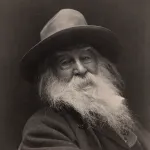When my mother died,
one of her honey cakes remained in the freezer.
I couldn’t bear to see it vanish,
so it waited, pardoned,
in its ice cave behind the metal trays
for two more years.
On my forty-first birthday
I chipped it out,
a rectangular resurrection,
hefted the dead weight in my palm.
Before it thawed,
I sawed, with serrated knife,
the thinnest of slices —
Jewish Eucharist.
The amber squares
with their translucent panes of walnuts
tasted — even toasted — of freezer,
of frost,
a raisined delicacy delivered up
from a deli in the underworld.
I yearned to recall life, not death —
the still body in her pink nightgown on the bed,
how I lay in the shallow cradle of the scattered sheets
after they took it away,
inhaling her scent one last time.
I close my eyes, savor a wafer of
sacred cake on my tongue and
try to taste my mother, to discern
the message she baked in these loaves
when she was too ill to eat them:
I love you.
It will end.
Leave something of sweetness
and substance
in the mouth of the world.
Even after many months in the freezer, a honey cake calls up strong memories.
- Why might someone keep her mother’s cake in the freezer long after her death?
- The title, “Cold Solace,” has echoes of the expression “cold comfort,” meaning disappointing or inadequate comfort. Is finding the cake actually consoling for the speaker, or is it merely cold comfort? Or are there aspects of both?
- Honey cakes are commonly baked for Rosh Hashanah (Jewish New Year), and often given away to family and friends. They symbolize hope for sweetness in the year to come. How does knowing this add to your understanding of the poem?
- This poem uses a variety of sensory images, involving touch, sight, taste, and smell. Which of these do you find most vivid?
- “Cold Solace” contains much alliteration (repetition of initial consonants) and assonance (repetition of vowel sounds). How does this affect the way the poem “tastes” when you speak it aloud? Does it make you want to linger over the repeated sounds?
Writing Activity:
Think of a food that you associate with an older family member, and use it as the starting point for a poem. Use sensory words to evoke colour, texture, taste, and smell. With the ending of “Cold Solace” as an example, ask yourself: if that food had a message for you, what would it be?
Useful Links:
Read about the history of the honey cake here.
“Cold Solace” can be described as an elegy—a poem expressing grief, sadness or loss. Read more about the elegy form here, and find more elegies in the Poetry in Voice collection here.
Anna Belle Kaufman "Cold Solace". Copyright © 2010 by Anna Belle Kaufman. Reprinted by permission of the author.
Source: The Sun, issue 417





